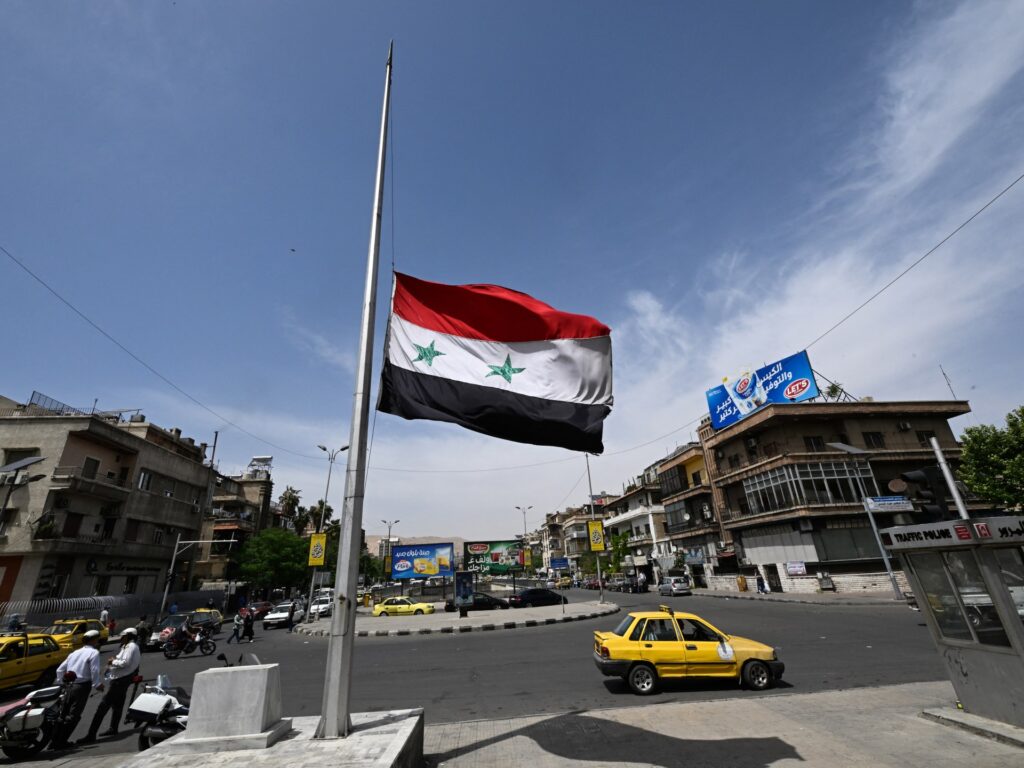A Syrian security source claims that the Israeli “aggression”, launched from Lebanese airspace, targeted military installations.
Israeli missiles have killed at least 16 people in central Syria, state media reported.
The attack on Sunday night caused a fire and material damage near the town of Masyaf in Hama province, according to SANA, the official Syrian news agency. The latest report, published Monday afternoon, also put the number of wounded at 36, bringing the death toll to 14 previously announced.
“Around 23:20 on Sunday evening, the Israeli enemy launched an aerial aggression from northwest Lebanon, targeting a number of military sites in the central region (of Syria),” a military source told SANA news agency.
“Our air defense systems confronted the aggression’s missiles and shot down some of them,” the source added, without providing further details.
The Israeli military does not generally comment on its operations in Syria.
Two regional intelligence sources said a major military research center for the production of chemical weapons near Masyaf had been hit several times, Reuters reported. A team of Iranian military experts involved in weapons production was believed to be working at the site, the news agency added.
A local health official quoted by SANA said 43 people were injured, several seriously, in the strikes.
The director of Masyaf’s public hospital said the victims were civilians.
“A severe punishment”
Israeli fighter jets have often launched attacks on Syria from Lebanon, likely in an attempt to avoid Syrian airspace where many regional and international forces, including those of Russia and the United States, operate.
Throughout Syria’s 13-year civil war, Israel has regularly carried out airstrikes in the country, mainly targeting sites linked to Iran.
Sunday’s attack comes amid rising regional tensions, with Iranian officials still vowing to respond to the assassination of Hamas leader Ismail Haniyeh in Tehran in July.
Iran, which maintains a military presence in Syria, had promised “severe punishment” to Israel for the assassination, but no Iranian attack has materialized more than 40 days after the killing.
Last week, Mohsen Chizari, a top commander in the Islamic Revolutionary Guard Corps (IRGC), said Iran’s response would come “in due time.”
Iran launched a direct attack on Israel with hundreds of drones and missiles in April in response to the Israeli bombing of an Iranian diplomatic building in Damascus.
Israeli and American air defenses in the area helped shoot down most of the projectiles, minimizing the damage from the attack.
Separately, Hezbollah carried out its own attack on Israel on August 25, in response to the death of one of its top commanders in an Israeli airstrike in Beirut that also killed several civilians.
Israel had said it had foiled the operation with a preemptive strike, but the Iranian-allied Lebanese group said it had managed to strike an Israeli military intelligence site near Tel Aviv.
Cross-border hostilities between Hezbollah and Israel continue almost daily. Hezbollah says it is targeting military sites in northern Israel and the occupied Golan Heights in Syria in support of Palestinians in Gaza, where the ongoing Israeli offensive has killed more than 40,900 people.
The Lebanese group has vowed to continue its military operations until the end of the Gaza war, while Israeli officials have vowed to push Hezbollah out of the country’s borders, including through all-out war if necessary.

